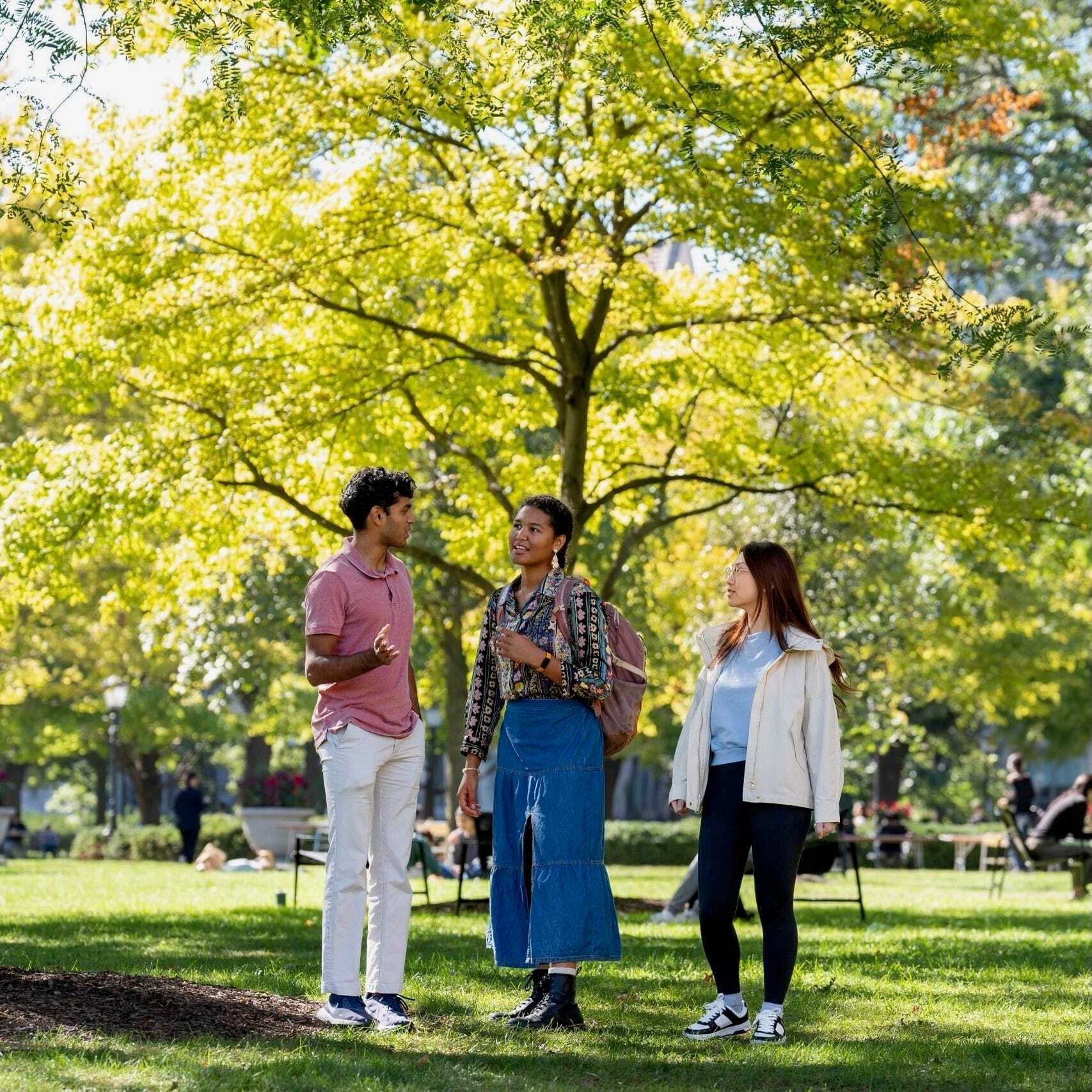The Harris Social Impact Fellowship
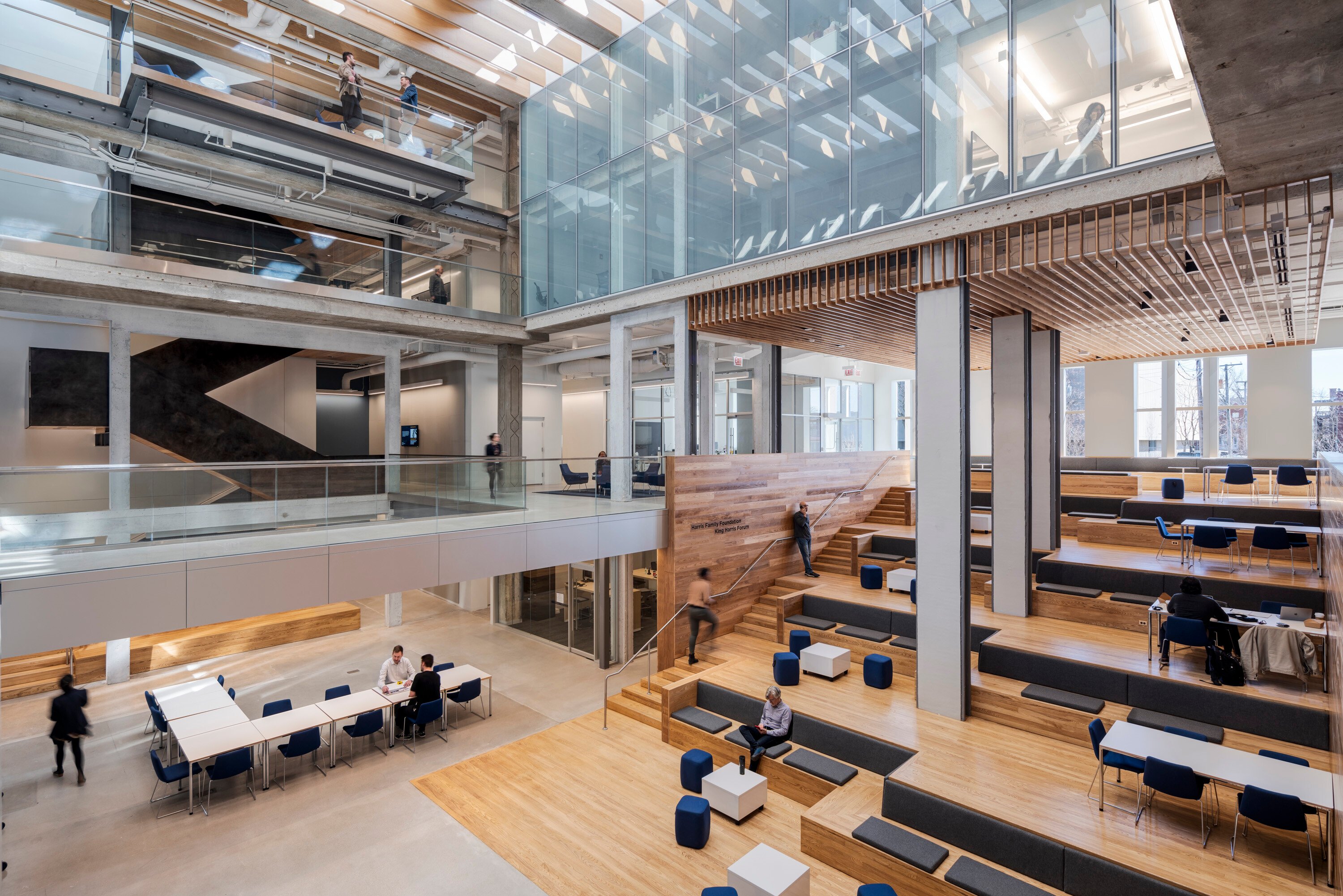
GAIN THE EXPERIENCE
TO TURN EVIDENCE INTO IMPACT
The Harris Social Impact Fellowship is a highly-selective, full-time, 11-month program for recent graduates and early career professionals with strong STEM skills and a passion for evidence-based change. Designed by University of Chicago Harris School of Public Policy faculty, the fellowship blends intensive training in policy analysis, critical reasoning, and data analytics with a hands-on placement at a top research center or policy institute.
Fellows begin with eight weeks of academic coursework followed by nine months tackling urgent issues like educational equity, climate action, crime reduction, and government efficiency. The experience culminates in a capstone project addressing a real-world policy challenge.
Throughout the program, fellows receive professional development, mentorship from policy leaders, and access to an unmatched network of faculty, alumni, and practitioners. Fellows emerge with the skills, momentum, and a defining career experience to advance data-driven change across public, private, and social sectors.
The application for the 2026–2027 cohort has closed. Applications for the 2027-2028 cohort will open in July.
On this page:
Academic Coursework
8 weeks of intensive, faculty-led coursework in data analytics, economic analysis, and analytical politics at the University of Chicago
Immersive Learning
9-months of immersive learning with leading research centers and policy institutes tackling issues like education, public safety, health equity, and climate change
Professional Development
Mentorship and PD through workshops focused on technical and leadership skills, problem sets, panel discussions, and networking with senior faculty, alumni, and civic leaders
Capstone Project
Real-world deliverables to showcase skills and apply fellowship training to a real-world social impact challenge in partnership with a mission-driven organization
Life-Long Community
The fellowship offers unique opportunities and an annual retreat that keeps alumni connected, creating a vibrant, impact-driven network
Mentorship and Career Coaching
Fellows receive personalized guidance throughout the program to navigate their professional goals and grow as social impact leaders
Fellowship Stipend
Stipend for living and healthcare expenses
To fully cover fellowship academic credential
Program at a glance
Start Date: July 2026 - June 2027
Duration: 11 Months, full-time
Format: In-Person
Location: University of Chicago Hyde Park Campus
Cohort Size: 15 Fellows

Summer Quarter | Orientation and Academic Coursework
Orientation lays the foundation for a strong, mission-driven cohort through community-building activities and exercises that foster a culture of open and civil discourse. From there, Fellows spend the first quarter in a fast-paced academic environment sharpening technical and analytical tools ranging from quantitative analysis and critical reasoning to cost benefit analysis and policy design.
Autumn, Winter, and Spring Quarters | Applied Learning
Fellows complete nine months of high-impact, real-world applied learning within teams tackling urgent public challenges such as advancing educational equity, improving government efficiency, and accelerating climate action.
Spring Quarter | Capstone Project
Fellows synthesize their year of learning and field experience into a Capstone Project—a real-world, data-driven policy initiative that addresses a critical challenge in the public or social sector. Working closely with mentors and project partners, fellows apply their technical skills, research insights, and leadership abilities to craft actionable solutions. The Capstone serves as both a final demonstration of fellows' abilities and a key stepping stone in their career development, with opportunities to present findings to stakeholders, policymakers, and future employers.
Fellowship Curriculum
The Summer Quarter immerses fellows in three faculty-led courses that establish a strong core foundation for engaging with public policy:
Data Analytics
With the focus on quantitative analysis, critical reasoning, and generating credible evidence, fellows learn program evaluation methodologies and develop the ability to critically assess policy claims. Fellows will also learn to leverage machine learning and AI to enhance their technical skills.
Economic Analysis
Developing foundational knowledge in microeconomic theory, social welfare analysis, and cost-benefit analysis, fellows will be equipped with skills in public finance, budgeting, and applying evaluation strategies to organizational improvement.
Analytical Politics
Exploring political philosophy, game theory, and governance challenges, this course provides fellows with tools to analyze how political institutions shape policymaking and strategies to influence policy effectively.

Behavioral Insights and Parenting Lab
The Behavioral Insights and Parenting Lab aims to promote human potential by using cutting-edge research methods to gain new insights into the science of parent decision-making.

Urban Labs | Education Lab
The Education Lab partners with school districts to design, test, and scale programs to ensure all students have the opportunity for future success.

Urban Labs | Energy and Environment Lab
The Energy and Environment Lab identifies, rigorously evaluates, and scales programs and policies that reduce pollution, conserve limited natural resources, improve environmental outcomes, and ensure access to reliable and affordable energy.

Mansueto Institute for Urban Innovation
The Mansueto Institute for Urban Innovation empowers urban communities through interdisciplinary research, collaboration, and innovation to address complex societal challenges.

Urban Labs | Crime Lab
The Crime Lab designs, tests, and scales data-driven innovations to improve the public sector’s response to the dual challenges of America’s gun violence crisis and a criminal justice system that is not truly just.

Urban Labs | Health Lab
The University of Chicago Health Lab partners with civic and community leaders to identify, rigorously evaluate and scale programs and policies that improve health outcomes and address systemic barriers to achieving health equity.
Accelerate Your Career.
Drive Evidence-Based Change.

As fellows complete the program and become alumni, continued engagement opportunities foster long-term connections and impact.
Junior Board Placement:
Support securing junior board opportunities based on social impact interests.
Annual Retreat:
Fellows, affiliated faculty, program leadership, will convene annually to foster engagement, community, and a lasting connection to Harris and Chicago.
Networking:
Opportunities for Fellowship alumni to engage with future cohorts, offering support and advice, making professional connections, and circulating job opportunities.
.avif)
I’ve spent my career in academia and now government working to increase rigor in philanthropic endeavors globally. There is a tremendous need for talented individuals to bring more technical capabilities and tools to social impact work. The Harris Social Impact Fellowship will help attract and shape these leaders, and I’m excited to follow its progress.
Dean Karlan
University of Chicago MPP/MBA’97
Professor of Economics and Finance, Northwestern University
Former Chief Economist United States Agency for International Development
Founder, Innovations for Poverty Action
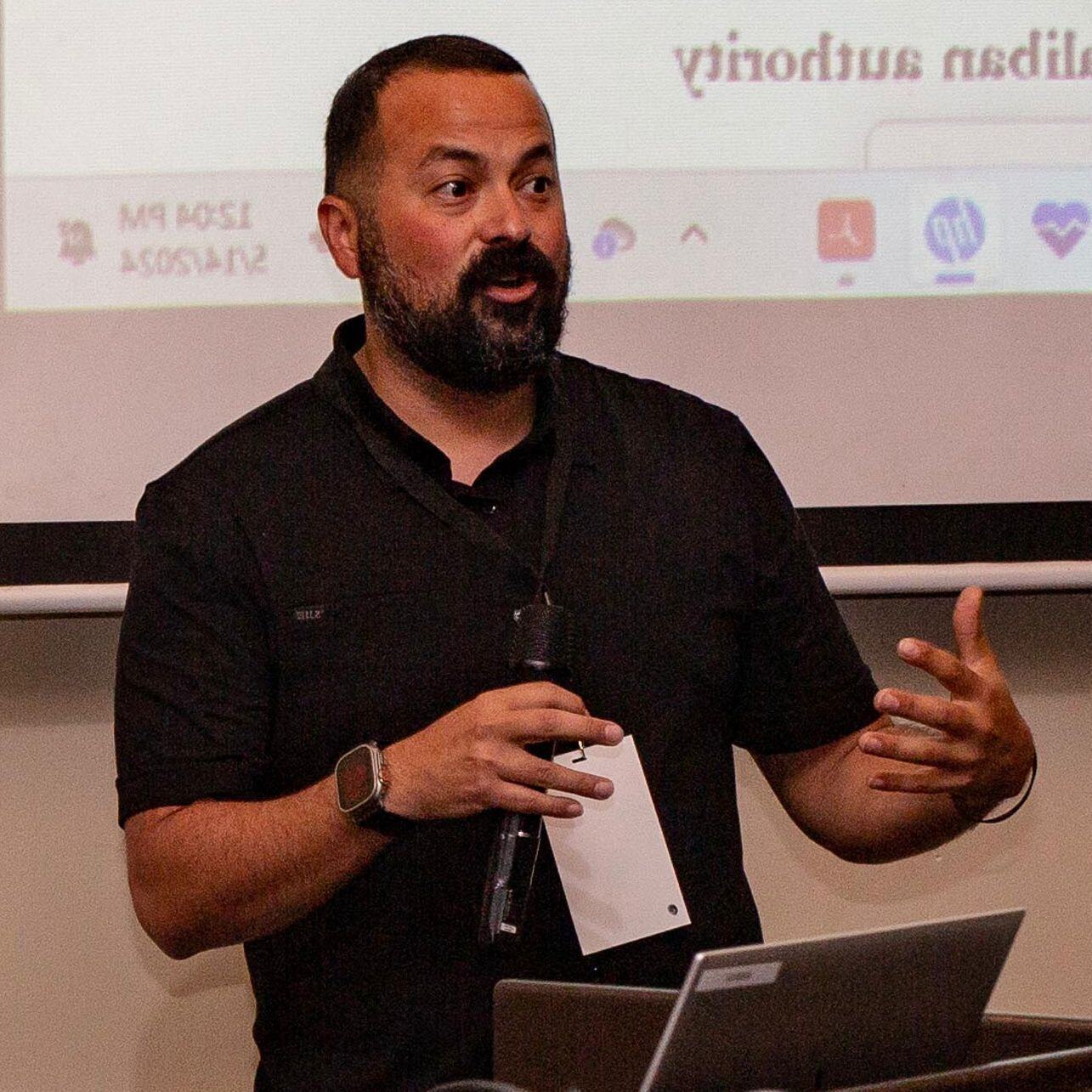
Austin Wright
Austin L. Wright serves as the Faculty Director of the Harris Social Impact Fellowship and is an Associate Professor and Director of Strategic Initiatives at the University of Chicago Harris School of Public Policy.
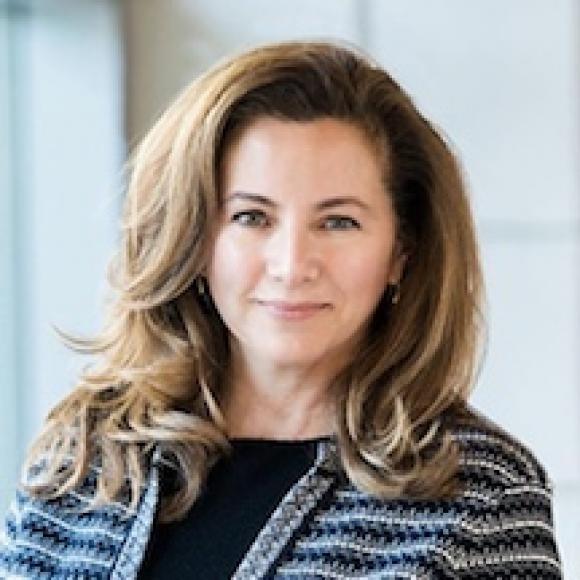
Ariel Kalil
Ariel Kalil is the Daniel Levin Professor at the University of Chicago Harris School of Public Policy, where she directs the Center for Human Potential and Public Policy and co-directs the Behavioral Insights and Parenting Lab.
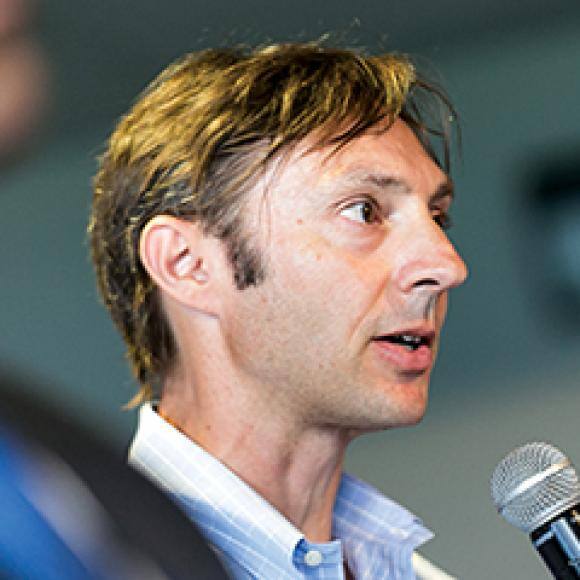
Jens Ludwig
Jens Ludwig is the Bergman Distinguished Service Professor at the University of Chicago, Pritzker Director of the Crime Lab, and Codirector of the Education Lab and the National Bureau of Economic Research’s working group on the economics of crime.
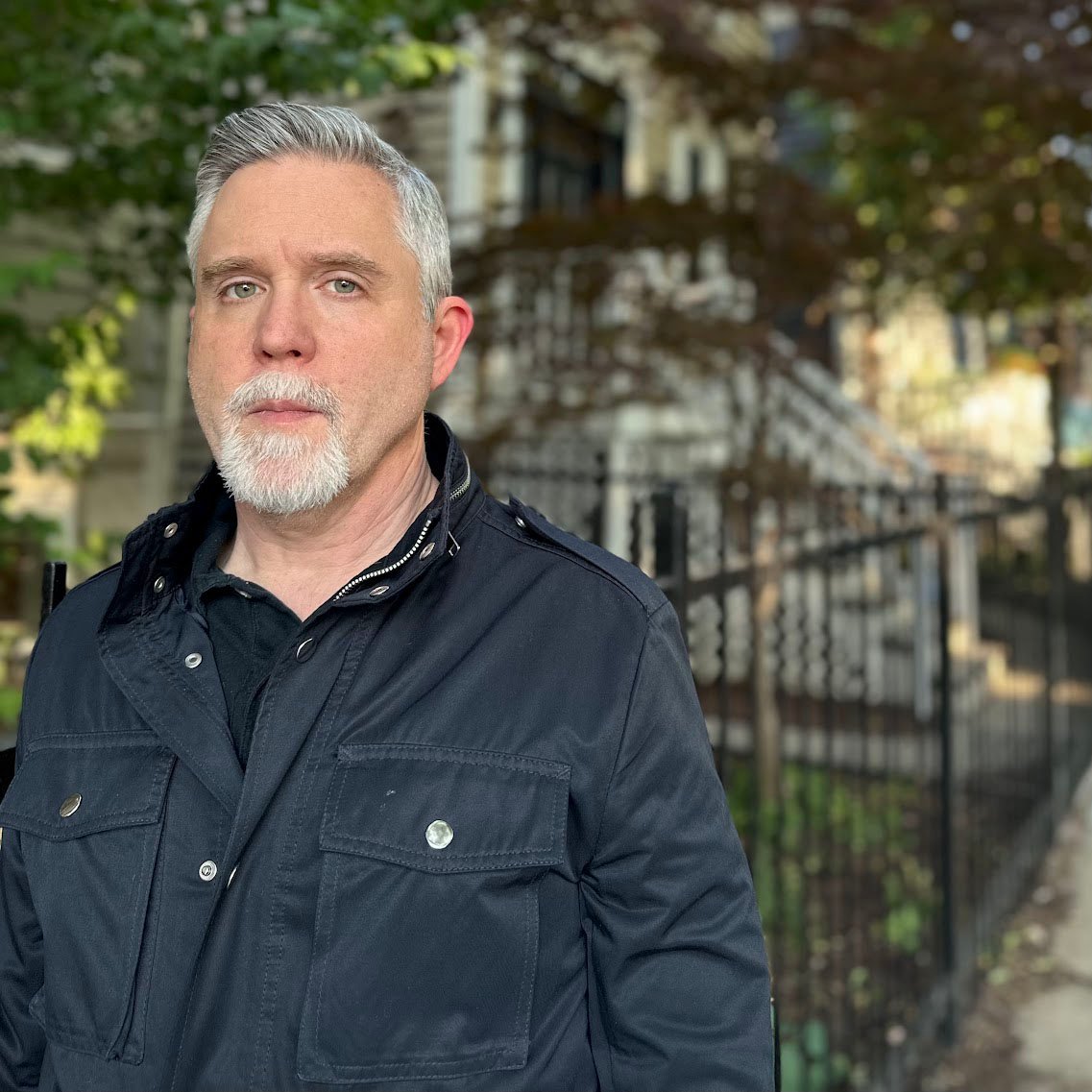
Chris Berry
Christopher R. Berry is the William J. and Alicia Townsend Friedman Professor at the Harris School of Public Policy and the College and Director the Mansueto Institute for Urban Innovation, at the University of Chicago.
Fellowship Information Session
December 1 | 4pm - 5pm CDT
From day one, Fellows receive personalized guidance designed to build careers aligned with their goals and values:
-
One-on-one coaching to define career direction, refine resumes, and prepare for interviews in the social, public, or private sector.
-
Targeted employer connections with mission-driven organizations.
-
Practical portfolio and skills development through the immersive learning experience and capstone project.
-
Mentorship and networking with sector leaders, alumni, and faculty who open doors to future opportunities.
Where the Harris Community is Making an Impact



-2.png?width=295&height=171&name=download%20(1)-2.png)


.png?width=310&height=163&name=download%20(2).png)
.png?width=425&height=119&name=download%20(3).png)
.png?width=294&height=171&name=download%20(4).png)

.png?width=310&height=162&name=download%20(5).png)

Eligibility
- Demonstrated capacity for serious technical, quantitative, or analytical work—e.g., through coursework, research, or work experience
- Recent college graduate or early-career professional (bachelor’s degree must be conferred prior to the start of the fellowship)
- The nature of this program requires participants be legally authorized to work in the U.S. If you are a U.S. visa holder, you must confirm with the sponsor of that visa whether participation in this program fits within the parameters of your current visa status. The University of Chicago cannot sponsor visas in connection with the program.
Application Requirements
- Motivation Statement
- Technical Experience Statement
- Resume
- 1 Letter of Recommendation
- Transcripts
Download a sample "Technical Experience Statement" (PDF, 150KB)
Application Deadlines
Application Process
Application Submission, Technical Assessment, Virtual Interview, On-Campus Interview Day

The Harris Social Impact Fellowship will be an extraordinary experience. Fellows will study the most rigorous tools for analyzing what really works to create social impact. At the same time, by embedding in evidence-driven partner organizations, they will make genuinely meaningful, direct contributions to public service.
Ethan Bueno de Mesquita
Dean and Sydney Stein Professor, Harris School of Public Policy
